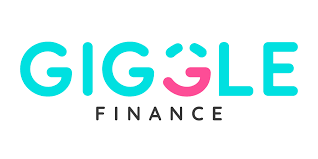Startup Business Loans: Best Options and How to Get One
Startup loans have flexible time in business requirements that make them easier to access for new companies.
Many, or all, of the products featured on this page are from our advertising partners who compensate us when you take certain actions on our website or click to take an action on their website. However, this does not influence our evaluations. Our opinions are our own. Here is a list of our partners and here's how we make money.
Concerned about tariffs?
Many small-business owners are under increased economic stress and uncertainty following the latest tariff announcements. NerdWallet is here to help you find answers for whatever you're looking for. Here are some resources to help you get started:
- Need emergency funding? Consider a business line of credit.
- Looking for fast access to working capital? Discover the best working capital loans.
- Want tips on how to mitigate the impact of tariffs? Read our guide.
If you’re a new entrepreneur, a startup business loan can provide the funds you need to get your operations up and running. Startup business loans can be used to cover working capital expenses, including inventory, payroll, utilities and insurance, as well as to purchase fixed assets such as furniture, equipment, machinery and real estate.
 Why trust NerdWallet
Why trust NerdWallet
250+ small-business products reviewed and rated by our team of experts.
80+ years of combined experience covering small business and personal finance.
50+ categories of the best business loan selections.
Objective and comprehensive business loans ratings rubric. (Learn more about our star ratings.)
NerdWallet's small-business loans content, including ratings, recommendations and reviews, is overseen by a team of writers and editors who specialize in business lending. Their work has appeared in The Associated Press, The Washington Post, MarketWatch, Nasdaq, Entrepreneur, ABC News, MSN and other national and local media outlets. Each writer and editor follows NerdWallet's strict guidelines for editorial integrity to ensure accuracy and fairness in our coverage.
What is a startup business loan?
A startup business loan is any type of small-business loan that’s available to a company with a limited operating history. Typically, lenders define a startup as a business with less than two years in operation.
Startup business loans are usually available from online or alternative sources. These lenders tend to have less strict requirements for how long you've been in business. As a result, they usually charge higher interest rates and offer shorter repayment terms than more traditional lenders.
Traditional lenders, like banks and credit unions, are less likely to fund startups because these businesses don’t yet have a proven track record of repaying debt.
How much do you need?
We'll start with a brief questionnaire to better understand the unique
needs of your business.
Once we uncover your personalized matches, our team will consult you
on the process moving forward.
Find the right loan for your business
Tell us how much you need and see your options in minutes.Types of startup business loans
Here are some of the most common types of startup loans. The right option for your business depends on your individual needs and qualifications.
SBA loans
The U.S. Small Business Administration's microloan program is startup-friendly, offering loans of up to $50,000 for small businesses looking to start or expand. The average SBA microloan is currently $14,771 for the 2026 fiscal year — with 28% of microloans going to startups (businesses in operation for two years or less) .
SBA microloans are administered by nonprofit community lenders and are typically easier to qualify for than larger-dollar loans. The downside: Funding may not be sufficient for all borrowers.
The SBA’s flagship 7(a) loan program also offers financing that borrowers can use to start businesses. But SBA 7(a) loans are tougher to get. These loans typically go to established businesses because they have proof of consistent revenue and can provide collateral that a lender can sell if you default.
It’s not impossible, however, to get a 7(a) loan as a startup. In the 2026 fiscal year so far, 16% of 7(a) loans have gone to businesses with less than two years in operation, and 15% have gone to startups that needed funds to open their business .
If you’re interested in a 7(a) loan, you can start your search with a lender you have a previous relationship with and ask about its SBA loan requirements for startups.
» MORE: How to get an SBA startup loan
Microloans
Microloans are also available outside of the SBA program. Microlenders and nonprofit lenders can be a more accessible option for startup business loans, especially if you have weak finances. Many of these lenders focus on minority or traditionally underserved borrowers, as well as small businesses in communities that are struggling economically.
Because these startup loans often come from mission-based organizations, the terms will likely be better than you would receive from a private lender, making it possible for you to grow your business and establish better credit. That can help you qualify for other types of financing in the future.
How Fundera by NerdWallet Works
Getting a business loan can be challenging. Let our sales experts help you through the process.

Fill out a simple application Our 3-min. questionnaire is free & won't impact credit.

See your loan options Compare rates and repayment terms to choose the best product for your needs.

Get your loan If approved, sign closing documents and receive funds.
Equipment financing
When securing equipment is necessary for your startup business, an equipment loan can help you finance the purchase. Unlike some other loans, you typically won’t need to put up additional collateral because the equipment you purchase serves that purpose. Equipment loan interest rates and repayment terms vary depending on the lender, your business qualifications, the value of the equipment and its useful life.
Online loans
Many online lenders offer business loans for startups with one year or less in operation. You'll typically need a minimum of three months in business to qualify. Depending on the lender, you may be able to access different types of financing, such as short-term loans and startup business lines of credit. Compared with more established businesses, however, you'll generally receive smaller loan amounts, shorter terms and higher interest rates.
CDFI loans
Community development financial institutions (CDFIs) are another provider of startup business loans. These banks, credit unions, and community lenders provide financial products and services to local residents and businesses in low-income communities. CDFI loans typically offer competitive interest rates and more flexible qualification requirements than traditional commercial bank loans. CDFI lenders can be found in all U.S. states, the District of Columbia, Guam and Puerto Rico .
Invoice factoring
Invoice factoring is a type of business financing that involves selling your unpaid invoices for cash. A third-party factoring company buys your outstanding invoices at a discount.
Invoice factoring is often faster and easier to access than a traditional bank loan — and it doesn’t require you to take on additional debt. The catch? This type of financing can be expensive due to the factoring company’s fees and the time it takes your customers to pay their invoices.
» MORE: Best invoice factoring companies
Merchant cash advances
A merchant cash advance (MCA) is an advance of money that’s repaid using future credit and debit card sales. This form of short-term financing is usually easy to qualify for and fast to fund. Because repayment is based on your sales, merchant cash advance companies may be more flexible with their time in business requirements.
But MCAs are one of the most expensive forms of business funding. You’ll want to consider all other startup financing options before opting for an MCA.
If you are interested in exploring this option, take a look at our list of the best merchant cash advance companies, many of which we’ve vetted and partnered with.
Best startup business loan options
How to get a startup business loan
Without a proven track record of success, it can be difficult to convince lenders to grant you a startup business loan. While the process for getting a business loan varies based on the type of funding and lender you choose, there are some general steps you can take to prepare.
1. Determine what kind of financing you need
As a startup, you’ll want to think carefully about what option is right for your needs.
Consider how much capital you need and how you’re going to use it. You should also calculate how much debt you can afford, making sure you can cover potential payments without disrupting your cash flow.
2. Evaluate your credentials
Next, you’ll want to review common business loan requirements so you have a sense of where you stand before applying. Although requirements for startup business loans vary, it’s helpful to consider the following minimum criteria:
- Personal credit score. Although some online lenders offer startup business loans for bad-credit borrowers (those with a personal credit score below 630), be wary of any lender that offers startup loans with no credit check or "guaranteed approval". It could be an expensive option — or a scam. You’ll typically need a personal credit score of 500 or higher; otherwise, you may need to build your credit before applying.
- Personal finances. Your personal finances will likely weigh heavily into your startup business loan application. A lower debt-to-income ratio and higher personal credit score are ideal to qualify for the best rates.
- Available collateral. It can be a good idea to offer substantial collateral on your loan application, even when it’s not required. In general, anything you can use to show your creditworthiness and ability to repay the financing will help you qualify for a startup business loan — as well as help you access more competitive rates and terms.
- Business data. If you haven’t yet started your business, putting in the time and effort to create financial projections not only gives a lender an idea of your business’s potential, but it also demonstrates that you are serious about your growth and success. If you’ve already started your business, you’ll need to provide financial and bank statements as well.
- Consider a cosigner. A cosigner on a business loan acts as a second guarantor and can help improve your chances of approval with a lender. If you know a trustworthy person with good personal credit and assets, it may be worth asking them if they’d consider cosigning your startup loan, if needed. However, keep in mind that if you default on the loan, the cosigner’s credit will be impacted along with your own.
3. Research and compare lenders
You should research several lenders in order to find the right fit for your startup business. As you compare different options, think about factors such as:
- Loan types.
- Interest rates.
- Repayment terms.
- Fees.
- The application process.
- Funding speed.
- Lender reputation.
4. Create a business plan with a funding request
A business plan can help you get a loan when it includes a funding request in addition to a market analysis, marketing plan, financial statements and other important information.
A well-thought-out and comprehensive business plan will support your loan application and can help persuade lenders on your business's potential for success. The funding request section of your plan should explain how much funding you need, what loan terms you’re looking for and how the money will be used.
5. Gather documents and apply
Your business loan application process will vary based on the lender and type of loan you choose. Typically, however, you’ll need to provide some, if not all, of the following:
- Basic information about you and your business, such as an employer identification number (EIN).
- Business licenses or formation documents.
- Personal and business bank statements.
- Personal and business tax returns.
- Financial statements, such as balance sheets and profit and loss statements (if your business is already operating).
- Cash flow projections.
- A business plan for funding.
- Collateral information.
Your lender will also likely ask you to sign a personal guarantee and/or file a UCC lien on your assets.
6. Review your options
You’ll want to compare multiple loan offers to make sure you’re getting the best deal for your new business. Once you’ve made a decision, thoroughly review your business loan agreement and ensure that you understand all the key details, including interest rates, fees, loan terms and the repayment schedule.
If you have any questions or concerns about the document, you should contact your lender for clarification before signing.

What to do if you are denied a startup business loan
If you’re denied a startup business loan, there are steps you can take that may allow you to still move your business forward.
Ask the lender what influenced the decision.
You may be able to address the lender’s concerns and then reapply. For example, if the decision was due to a poor credit score, you may be able to take steps to improve your score. Or, if the lender felt a loan was too risky to approve, you might offer collateral or a cosigner to lower the risk for the lender.
Try a different type of loan.
If you’ve been denied a bank or SBA loan, you may want to look for loans with more flexible qualification requirements. Consider online loans, microloans or CDFI loans, but be aware that nontraditional options may have higher rates and shorter terms.
Start a scaled-back version of your business.
If you can’t get funding to start your business, consider launching a smaller version of your business that you can finance on your own. This may involve offering fewer products, running the operation yourself instead of hiring staff and delaying the lease of a commercial property. You can also try starting a crowdfunding campaign to validate an idea, test demand and get user feedback before expanding to a wider market.
Strengthen your business plan.
Providing projected financial statements covering at least three years can demonstrate how you plan to generate enough profit to repay a loan. There are companies that specialize in writing business plans for a fee, or you could use the free or low-cost services offered by your local Small Business Development Center or SCORE office.
Alternatives to startup business loans
A startup loan may not always be the best option to finance your new business. If you’re just trying to get your business off the ground, for example, it may be difficult to qualify for a loan.
If you’re having trouble qualifying or are wary of taking on debt, consider other startup funding options:
Startup business grants
Grants from private foundations, government agencies or small-business incubator programs offer funding you don't need to repay. Startup grant applications are often competitive and require a significant time investment, but may be worth it if you can get funding.
Grants may be a particularly good option for startups in specific industries or demographics, including:
Startup business credit cards
Many entrepreneurs rely on business credit cards to help fund early expenses. You can use this option as short-term financing for business purchases that you can pay off quickly. Business credit cards also typically come with rewards programs that offer cash back, points or miles — so you can earn more for your spending.
Carrying a balance allows interest charges to accumulate, so you’ll want to make sure you can pay off anything you purchase. It’s also important to keep in mind that business credit card providers will use your personal credit history to evaluate your application and set interest rates. As a result, it may be difficult to qualify with bad credit.
Family and friend loans
One of the most common ways of financing a new business is to borrow money from friends or family. Of course, as you would with a lender, you’ll have to convince them that you’ll be able to pay them back. Also, to avoid misunderstandings, it’s best to put the loan terms in writing so all parties clearly understand the agreement.
Plus, the potential cost of failure isn't just financial; it's personal. Limit your list of friends and family to those who understand your plans, and do your best to make certain they're comfortable with the risks involved.
Bootstrapping
Some entrepreneurs use personal funds to start up their businesses — bootstrapping, as it’s often called. This may include dipping into personal savings or retirement accounts to access cash for startup costs. Withdrawals from retirement accounts for business uses are commonly called Rollovers as Business Startups (ROBS) transactions.
While self-funding can be a quick path to getting funding for your business, it could also result in the loss of money you’ve set aside for retirement or other goals, if your business fails.
Frequently asked questions
How do you get a startup business loan?
To get a startup business loan, you may need:
- A personal credit score of 500 or higher.
- Annual revenue of $50,000 or more.
- Three or more months in business.
- Physical collateral.
- A business plan.
- Business and personal tax returns.
- Business and personal bank statements.
- Financial statements.
How much can I get for a startup business loan?
Maximum funding amounts for startup business loans can range from $50,000 to upward of $1 million, although it will be more difficult to qualify for larger loan amounts. Typically, startups receive smaller loans than more established businesses because they pose a greater risk of default to lenders.
How hard is it to get a startup business loan?
It’s more challenging for a startup to get a business loan compared to an established company, but it’s not impossible. Good personal credit, strong finances and available collateral can all help you qualify for a startup loan.
Do banks loan money to startups?
In some instances, banks will offer loans to startups. Although most banks require that you have two or more years in business to qualify for a loan, others may lend to startups that can show excellent credit, strong finances and sufficient collateral — usually valued at or above the amount of the loan request.
Bank of America, Wells Fargo, U.S. Bank and Huntington Bank, for example, all offer certain loan options for startups.
What credit score do you need for a startup business loan?
To get a startup business loan, you’ll need a personal credit score of at least 500, although a higher score is preferable and requirements vary by lenders. Online lenders typically accept lower credit scores than traditional banks, but online loans have higher interest rates and shorter terms.
Learn more about credit score requirements for business loans.
Article sources
NerdWallet writers are subject matter authorities who use primary,
trustworthy sources to inform their work, including peer-reviewed
studies, government websites, academic research and interviews with
industry experts. All content is fact-checked for accuracy, timeliness
and relevance. You can learn more about NerdWallet's high
standards for journalism by reading our
editorial guidelines.
- 1. U.S. Small Business Administration. Microloans Summary Report. Accessed Jan 5, 2026.
- 2. U.S. Small Business Administration. 7(a) & 504 Summary Report. Accessed Jan 5, 2026.
- 3. Community Development Financial Institutions Fund. CDFI Certification. Accessed Jan 5, 2026.
Methodology
NerdWallet’s review process evaluates and rates small-business loan products from traditional banks and online lenders. We collect over 30 data points on each lender using company websites and public documents. We may also go through a lender’s initial application flow and reach out to company representatives. NerdWallet writers and editors conduct a full fact check and update annually, but also make updates throughout the year as necessary.
To come up with our list of the best startup business loans, we selected lenders with a minimum time in business requirement of one year or less.
Our star ratings award points to lenders that offer small-business friendly features, including:
- Transparency of rates and terms.
- Flexible payment options.
- Fast funding times.
- Accessible customer service.
- Reporting of payments to business credit bureaus.
- Responsible lending practices.
We weigh these factors based on our assessment of which are the most important to small-business owners and how meaningfully they impact borrowers’ experiences.
NerdWallet does not receive compensation for our star ratings. Read more about our ratings methodology for small-business loans and our editorial guidelines.
On this page
Starting Small: A newsletter to get your business off the ground
Subscribe for grant opportunities, product recommendations and no-nonsense advice from the Nerds. Related articles





















